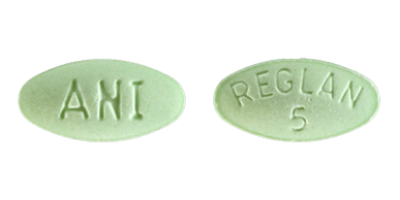Reglan & Tardive Dyskinesia Lawsuits
Manufacturers of Reglan and its generic form, metoclopramide, have faced thousands of lawsuits relating to serious side effects from use of the drug, particularly tardive dyskinesia, a potentially permanent disorder involving involuntary movements, primarily in the face. Drugwatch's legal partners are currently not accepting Reglan lawsuit cases.
Our content is developed and backed by respected legal, medical and scientific experts. More than 30 contributors, including product liability attorneys and board-certified physicians, have reviewed our website to ensure it’s medically sound and legally accurate.
legal help when you need it most.
Drugwatch has provided people injured by harmful drugs and devices with reliable answers and experienced legal help since 2009. Brought to you by Wilson & Peterson LLP, we've pursued justice for more than 20,000 families and secured $324 million in settlements and verdicts against negligent manufacturers.
More than 30 contributors, including mass tort attorneys and board-certified doctors, have reviewed our website and added their unique perspectives to ensure you get the most updated and highest quality information.
Drugwatch.com is AACI-certified as a trusted medical content website and is produced by lawyers, a patient advocate and award-winning journalists whose affiliations include the American Bar Association and the American Medical Writers Association.
About Drugwatch.com
- 15+ Years of Advocacy
- $324 Million Recovered for Clients
- 20,000 Families Helped
- A+ BBB Rating
- 4.9 Stars from Google Reviews
Testimonials
I found Drugwatch to be very helpful with finding the right lawyers. We had the opportunity to share our story as well, so that more people can be aware of NEC. We are forever grateful for them.
- Legally reviewed by Tess Schulman, Ph.D.
- Last update: December 11, 2025
- Est. Read Time: 3 min read
Status of Reglan Lawsuits
The Philadelphia County Court of Common Pleas accepted a global settlement involving Teva Pharmaceuticals and subsidiaries on Feb. 6, 2018. The settlement affected roughly 1,700 of the more than 2,000 then-pending Reglan lawsuits. The global settlement resolved cases around the United States related to claims the drugs caused tardive dyskinesia.
Details of the settlement, including the amount of money involved, were not made public because of the confidential nature of the agreement.
A Pennsylvania-based watchdog group named Reglan and metoclopramide the most litigated drug in 2011, with over 11,000 litigation-related adverse event reports received by the FDA that year.
Why People Sued
Reglan is used to treat acid reflux, migraines, heartburn, and gastroparesis. Defendant drug companies were accused of negligence, fraud, and deceptive marketing practices for failing to adequately warn about the risk of developing neurological disorders when using Reglan.
The plaintiffs claimed that drug companies’ negligence caused them permanent neurologic damage and other disorders, demanding compensation for medical expenses, lost wages, and punitive damages.
Drugmakers Accused of Concealing Side Effects

The Food and Drug Administration warns that use of Reglan for longer than 12 weeks carries a significant risk of tardive dyskinesia, a painful, socially crippling, neurological disorder. Other potential serious side effects include depression, suicide, Parkinson’s disease and Neuroleptic Malignant Syndrome, a rare, but serious condition that can be fatal.
People who were diagnosed with tardive dyskinesia or suffered other side effects as a result of taking Reglan have filed lawsuits against the drug’s manufacturer for concealing the side effects of the drug and failing to warn the public. Much of the litigation has been mired in issues related to whether the manufacturers of the generic form of the drug or the brand-name makers can be held liable. This has led to a number of confusing and seemingly contradictory court rulings.
Laws, Rulings Limit Reglan Lawsuits
As in all cases, people who think they have a claim against Reglan makers have to be mindful of the statutes of limitations, or the legal deadlines for filing lawsuits, which can vary from jurisdiction to jurisdiction. The limit has caused problems for some people who were injured by the drug. For example, in August 2016, a Nebraska federal court dismissed a fraud suit against Pfizer Inc., Wyeth LLC and Schwarz Pharma Inc., because the plaintiffs had taken more than 10 years too long to sue.

Courts have also handed down rulings severely limiting cases against generic drug makers. It’s believed that about 95 percent of Reglan patients take a generic version, something that is encouraged by insurance companies for most drugs. Consequently, many law firms across the country have stopped taking Reglan cases.
However, some attorneys are representing people who were injured after taking Reglan for at least three months and developed serious side effects, such as tardive dyskinesia. The awards have ranged from small amounts to more than $1 million. Thousands of cases have been resolved through confidential settlements. The lawsuits seek compensation for pain and suffering, as well as lost income.
In one case that reached a jury in 2007, a 69-year-old woman in Rhode Island won a jury verdict of $1.25 million – plus $1.7 million in interest – against her physician over his prescribing her Reglan for years, beginning in the early 1990s. According to a report in Lawyer’s Weekly, in 1995, the woman switched pharmacies, and the new pharmacist refused to fill the prescription because he believed she was having a reaction to the Reglan. The pharmacist contacted the physician about his concerns that the patient had developed a movement disorder. The note in the doctor’s office record was, “Thank you continue Reglan.”
In 2000, the woman was diagnosed with tardive dyskinesia, and after that, she filed suit against her doctor and pharmacy. The case against the pharmacy settled before the trial for a confidential amount.
Various courts, including the U.S. Supreme Court, have issued differing decisions about whether the drug makers could be sued for failing to adequately warn patients of the potential dangers of taking the medication. The U.S. Supreme Court has held that the makers of brand-name Reglan could be subject to such litigation, while manufacturers of generic versions could not. But some state courts have held their laws are different and not covered by the U.S. Supreme Court decision in this respect.
-
August 2016
In August 2016, the New Jersey Supreme Court ruled unanimously that generic Reglan failure-to-warn lawsuits were not barred by federal law. The ruling allowed hundreds of claims against the generic makers, including Pliva Inc., Actavis Elizabeth LLC, and Teva Pharmaceuticals USA Inc., to move forward.
-
March 2015
The U.S. Supreme Court, in March 2015, declined to consider a Pennsylvania appeals court ruling that the maker of a generic version of Reglan had to face failure-to-warn claims in state court.
-
January 2015
In January 2015, a Mississippi federal judge ruled that brand-manufacturers Wyeth and Alaven Pharmaceuticals could not be sued for the suicide of a patient who took a generic form of the drug that they did not make. The makers of the generic form of the drug had earlier been dismissed from the case because of a 2011 Supreme Court ruling that spared generic drug companies from state failure-to-warn claims. The patient’s mother, Diane Truddle, had filed the lawsuit without the aid of an attorney.
-
January 2013
But in January 2013, the Alabama Supreme Court ruled that a patient could sue brand-named manufacturer, Wyeth, even though he had taken the generic form of the drug. A lawyer for Pfizer, which owned Wyeth, told The New York Times that the decision ran counter to more than 70 other court decisions that had gone the other way. The state Legislature in 2015 changed the law to prevent such lawsuits.
-
2011
In 2011, the U.S. Supreme Court ruled in a generic Reglan case, held that generic drug manufacturers could not be sued for failing to warn of potential serious side effects. In 2008, the same court had ruled that makers of brand-name drugs could be sued under state law for failing to warn about potential serious side effects.
Calling this number connects you with a Drugwatch.com representative. We will direct you to one of our trusted legal partners for a free case review.
Drugwatch.com's trusted legal partners support the organization's mission to keep people safe from dangerous drugs and medical devices. For more information, visit our partners page.




